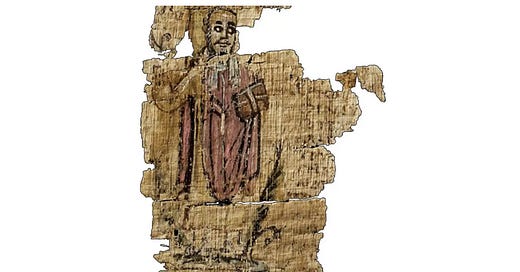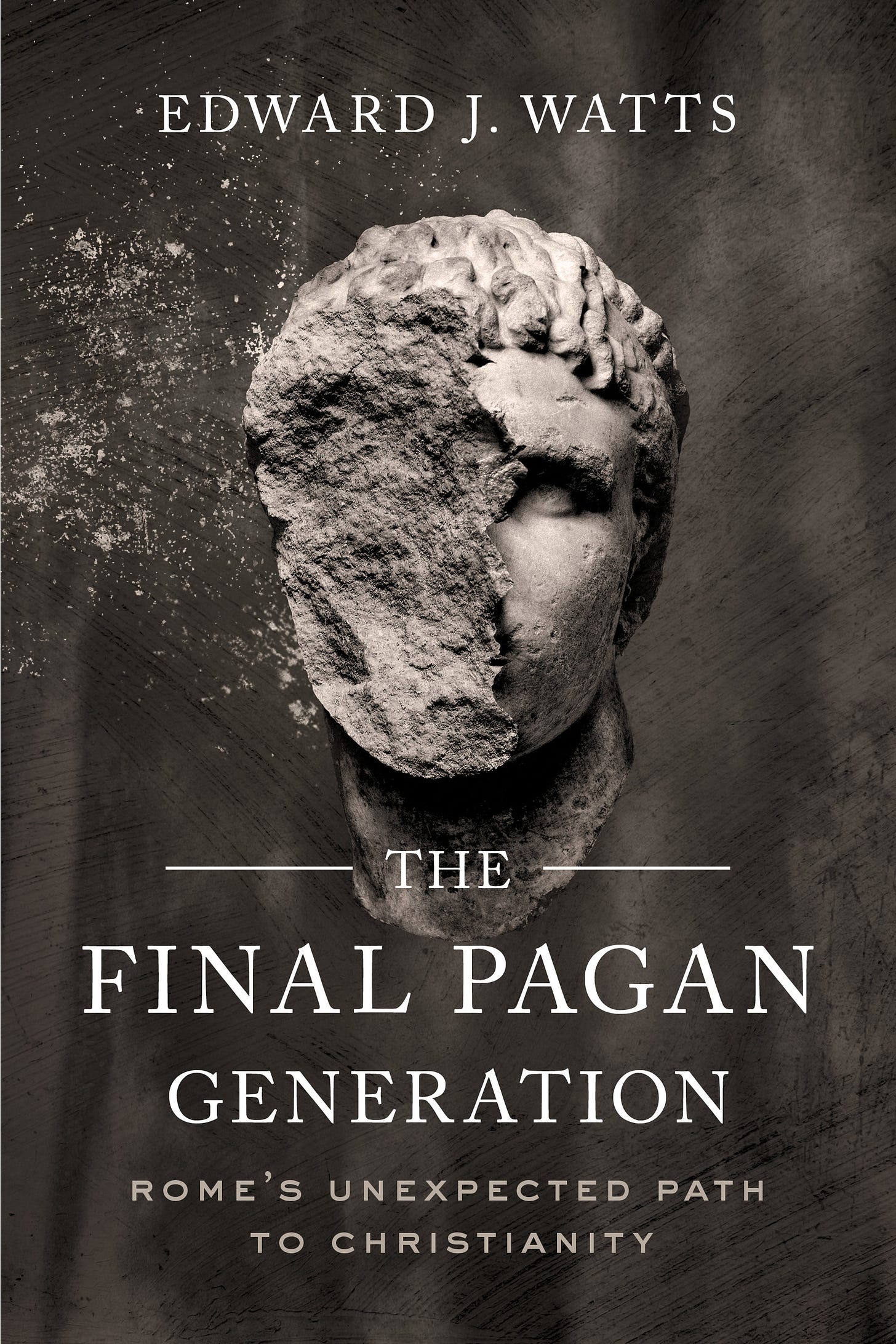Concluding Remarks on Watts' "The Final Pagan Generation"
Big Questions on faith, tolerance, and competing worldviews
Previous Entry - Chapter 9: LPG in Retirement and Death, Muscular Christians Destroy Temples
Watts uses the Christian destruction of the Temple of Serapis (Serapeum) in Alexandria in AD 392 to bookend his excellent, excellent history “The Final Pagan Generation”. Throughout this series, we have noticed eerie parallels with today’s West, particularly the USA. They are far too numerous to recount in this single post, meaning that you’ll just have to go through the previous entries if you haven’t done so already.
A few themes have forced their way through the history to become prominent in the discussion:
the ubiquity of Roman Paganism in the everyday lives of its citizens, leading to the natural conclusion that it would never, ever disappear
the view of post-repression Christianity as just another cult in the dense mosaic of already-existing ones, one that could not replace traditional ways of devotion to the gods
the Roman State institutionalizing Christianity by ending its repression and then financing its rise thanks to Christian Emperors who remained very careful not to upset the delicate confessional balance for fear of alienating its own citizens, to the detriment of the Emperor’s position
the elites locked into a very-rewarding, yet highly demanding, lifelong network that worked to buttress the imperial administration and the Empire itself
the accumulation of personal wealth and influential positions causing these very same elites to either downplay or ignore the existential threat that rising Christianity posed to “the old ways”
the rise of a Christian counterculture, either adjacent to or wholly outside of the imperial system, and its adoption by the children of the LPG’s elites
Christian zealots flexing their muscles and influencing imperial policy towards the end of the 4th century after a long and steady climb upwards
The Church as a rival of the Empire for the primary loyalty of its citizens
Paganism was omnipresent in AD 4th Century Rome. Watts does an excellent job in detailing this case. However, I think what is missing is an investigation into just how much Romans believed in “the old ways” i.e. pagan gods, rituals, rites, etc. Naturally, we can’t fit all the Romans into the same box regarding this, but I am curious as to how devote its most devoted where, and how large of a percentage of the whole they could be said to represent by the 4th century. What I am asking is: did the old ways exhaust themselves, relegated to simple ritual and symbolism? I don’t know, maybe others can answer this or point to sources that discuss this question.
And this brings me to the key question: has Christianity exhausted itself in the West? It’s a horrible question for Christians to ask themselves, but it’s one that is necessary to ask, and I think that it is the most important one for us to explore after digesting this book.
Most (if not all) of us here understand the utilitarian aspects of Christianity in our societies….but what if the actual faith is now close to burning itself out like the last flame in a once-roaring fire? Many have written on how “wokeness” is little more than a watered-down Christianity minus both Christ and forgiveness. This suggests to us the existence of a vacuum that requires filling.
There are other difficult questions that require thought and discussion as well, foremost among them being how to effectively oppose wokeness now that it has captured almost every institution in the West. I don’t think that this can be done by way of liberal democracy, to be honest. Maybe it’s time to borrow from the woke and adopt Popper’s intolerance towards the intolerant? Maybe it’s already too late?
“The Final Pagan Generation” was a fantastic read and a perfect book to use for the FbF Book Club. For those of you who read it, I am certain that you enjoyed it just as much as I did. I also hope that you enjoyed the posts that have made up this series.
Use the comments section here to not just comment on the post and the questions that I have raised, but also to suggest books for future FbF Book Club series.






I will now turn to new interviews after pausing them for several months.
We got through this one!
Hit the like button above and leave a comment if the mood strikes you. Please consider subscribing if you haven't already.
Feel free to use the comments section to suggest other books for future FbF Book Club entries.